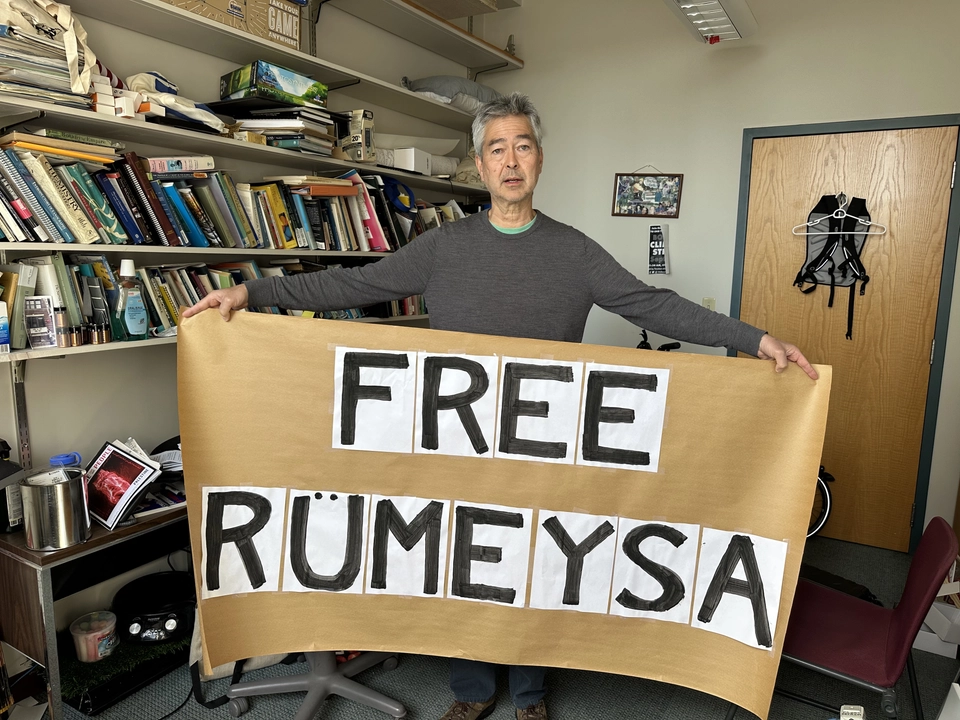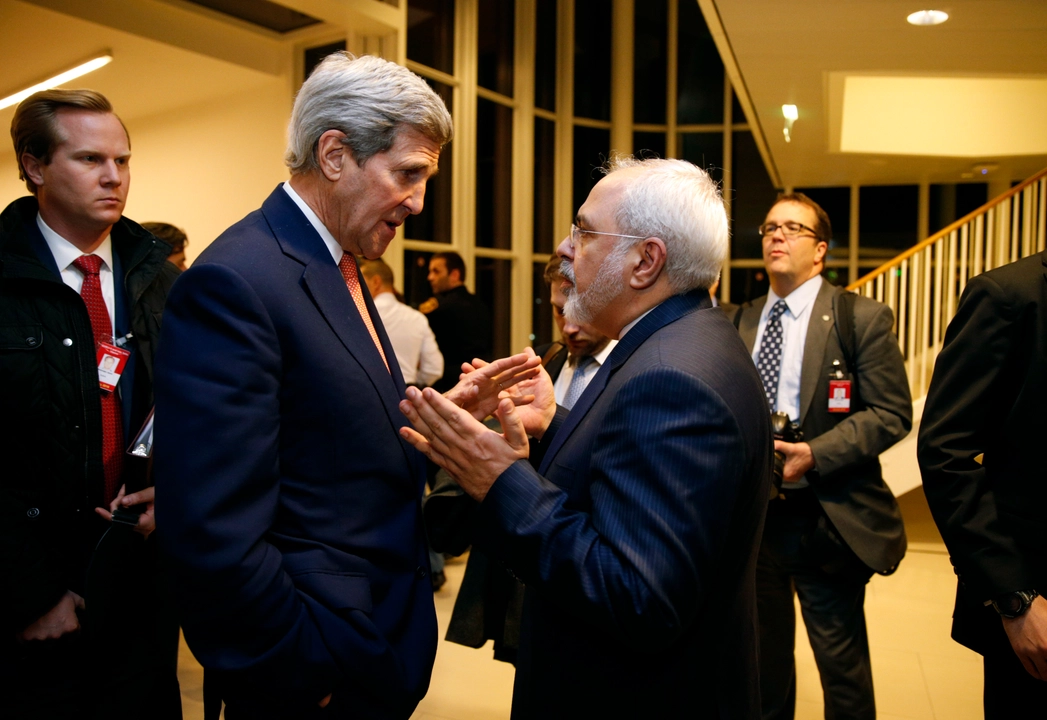A Boston University professor has gone on a hunger strike to draw attention to the silencing of dissent and the unjust treatment of a detained Turkish student.
Nathan Phillips, an environmental scientist, began his hunger strike on April 15 after Boston University administrators repeatedly removed a “Free Rumeysa” sign from the window of his fourth-floor office at the university’s downtown campus.
Rumeysa Ozturk, the student at the centre of his protest, is a Fulbright scholar and PhD candidate in child and human development at Tufts University. She was detained by masked Immigration and Customs Enforcement (ICE) agents outside her residence in Somerville, Massachusetts, near Boston, on March 25.
He had posted the banner several times before the final incident — and saw it taken down each time. Phillips eventually taped a note to his office door that read: “If you take down the banner again, I will start a hunger strike.”
When he returned to his office on April 15 and found the banner removed once again, he followed through on his promise and started his strike.
During a meeting with the Dean of the College of Arts and Sciences, he was told that taking down political banners from campus buildings was in line with university policy.
Censorship on campus
Like many others in Boston and across the country, Phillips said he was horrified by the way Rumeysa Ozturk was taken into custody, comparing it to an "abduction."
He said he never thought he would live in a country where someone could be “disappeared” for expressing themselves in a school newspaper, a clear violation of the US Constitution.
Phillips argued that Ozturk’s arrest violated both the First Amendment, which protects freedom of speech and expression, and the Fifth Amendment, which guarantees fair and legal proceedings. That, he said, is what prompted him to put up the “Free Rumeysa” sign in the first place.
He emphasised that what was done to Ozturk was not just an attack on her rights, but also on the rights of others, including himself.
While his protest was sparked by censorship on his campus, he sees it as part of a larger stand against attempts to suppress freedom of thought at universities and across the country.
On the door to his room, Phillips has portraits of Ozturk and Columbia University’s Mahmoud Khalil – a recent graduate the US is trying to deport – and says he longs for the day he can freely display the “Free Rumeysa” banner again on her window.
As long as his health permits, he said he will continue the hunger strike until Rumeysa Ozturk, along with Columbia’s Khalil and Mohsen Mahdawi – both targeted over their support for Palestine – are released.
To avoid disrupting his teaching and academic duties, he continues to take fluids and electrolytes, allowing himself unsweetened coffee and herbal teas, but no food.
Weaponising ‘anti-Semitism’ allegations
On the subject of anti-Semitism, Phillips acknowledged that real anti-Semitism and anti-Jewish hate exist, but said the term has been weaponised to silence pro-Palestinian views and criticism of Israel.
Even during the 2003 US invasion of Iraq, people were still able to publicly oppose the war, which he sees as a real expression of free speech. Criticising Israeli policies, especially what he described as indiscriminate violence and collective punishment of Palestinians in Gaza under Prime Minister Benjamin Netanyahu, he said, is not the same as being anti-Semitic.
Phillips added that it breaks his heart to see international students being treated unfairly, with their visas revoked without explanation.
Though the number of affected students has not been made public, he said several students at his university had already lost their visas, a pattern seen nationwide in recent weeks.
He decried the growing climate of fear and anxiety spreading across universities in the country, calling it deeply concerning.
According to multiple news outlets, US District Court Judge William Sessions said in a Friday ruling that Ozturk had presented "significant evidence" to support allegations that her detention violated her free speech and due process rights.
"Her evidence supports her argument that the government's motivation or purpose for her detention is to punish her for co-authoring an op-ed in a campus newspaper that criticised Tufts University's administration and to chill the political speech of others," said Sessions.
"The government has so far offered no evidence to support an alternative, lawful motivation or purpose for Ms. Ozturk's detention."
The judge set a May 1 deadline for the government to transfer Ozturk to Vermont. She has a bond hearing scheduled in that state for May 9 and a petition hearing on her case May 22.















